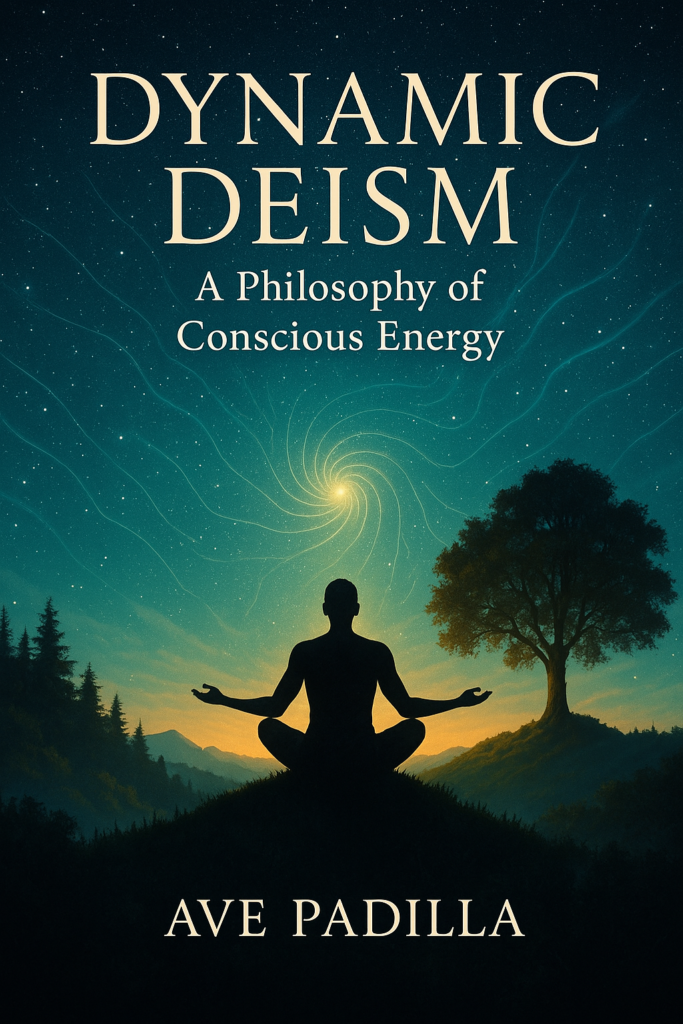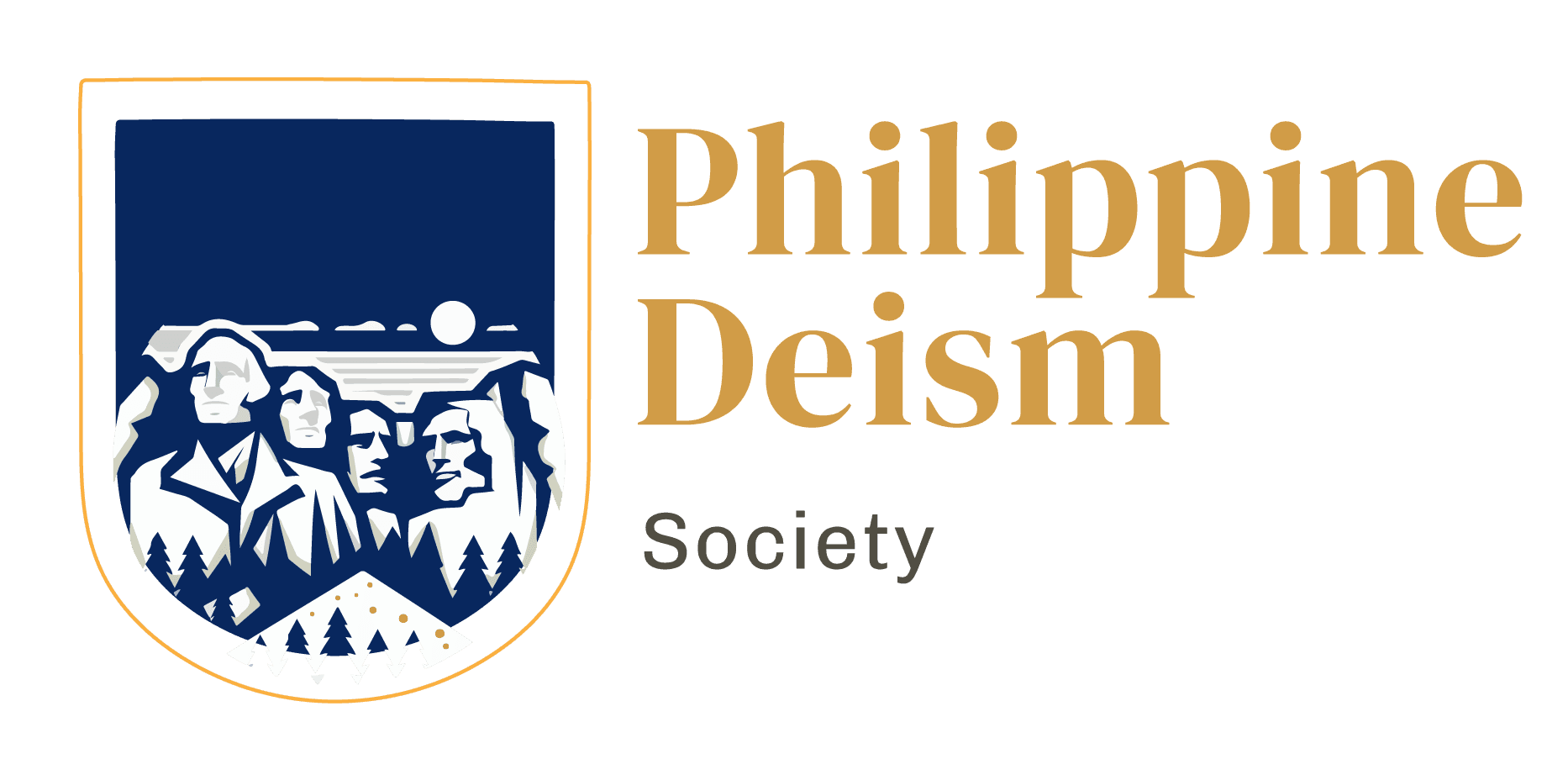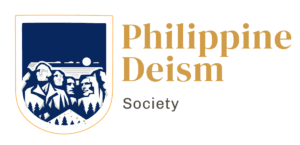
INTRODUCING DYNAMIC DEISM, A PHILOSOPHY OF CONSCIOUS ENERGY
DEFINITION:
DYNAMIC DEISM is the philosophical and spiritual perspective that GOD is the fundamental, self-sustaining, and evolving force of existence. Rather than conceiving of a personal, anthropomorphic deity, DYNAMIC DEISM asserts that GOD is best understood as the intelligent, dynamic energy that permeates and animates the cosmos. This ever-unfolding force governs the natural world, consciousness, and the moral order, not through arbitrary commands, but through reason, natural law, and universal interconnectedness.
At its core, DYNAMIC DEISM integrates insights from:
> Deism, in affirming a rational, non-anthropomorphic divine principle.
> Pandeism, in suggesting that the universe itself is an expression of this conscious energy.
> Pantheism, in suggesting that the universe itself is the embodiment of this conscious energy.
> Panpsychism, in exploring the presence of awareness at all levels of existence.
However, DYNAMIC DEISM differs from these traditions by presenting energy itself as the fundamental unifying principle, transcending both theism and atheism. It does not require a personal deity but affirms a universal intelligence embedded within energy itself, guiding the evolution of the cosmos, life, and consciousness.
Throughout history, humanity has sought to understand the nature of existence, consciousness, and the divine. From ancient spiritual traditions to modern scientific inquiry, a recurring theme emerges: the fundamental role of energy in shaping reality. DYNAMIC DEISM is a philosophical framework that explores this idea, proposing that energy is not merely a physical force but a conscious, self-organizing principle that underlies existence itself.
This work is the result of both independent thought and a synthesis of ideas found in Deism, Pandeism, Pantheism, and Panpsychism. Deism provides the foundation of a rational spirituality, Pandeism suggest a divine unity with creation, and Panpsychism explores the idea that consciousness permeates existence. DYNAMIC DEISM seeks to advance these ideas by presenting a cohesive vision of energy as both the fundamental substance of reality and the basis of awareness, intelligence, and purpose.
As the primary proponent, I have coined the word DYNAMIC DEISM, and now seeks to develop this philosophy in a way that honors intellectual integrity, rational inquiry, and spiritual depth. While influenced by past thinkers and scientific insights (Please see Chapter Five of the book, “God, The Divine Energy”), THE FRAMEWORK PRESENTED HERE REPRESENTS AN ORIGINAL SYNTHESIS —an attempt to articulate a worldview that combines what others have written about Deism, Pandeism and Panpsychism.
It is my hope that DYNAMIC DEISM will inspire thoughtful dialogue, deeper exploration, and a renewed appreciation for the interconnectedness of all things.
DYNAMIC DEISM: The Philosophy of Divine Energy in Motion
CORE TENETS:
Divinity as Intelligent, Evolving Energy
The universe is not the creation of a distant, external deity but the manifestation of an immanent, self-regulating force that drives existence.
This force is an intrinsic, evolving aspect of reality, expressed in motion, transformation, and the unity of all things.
The Primacy of Reason and Natural Law
> Divine truth is not revealed through sacred texts or religious institutions but discovered through observation, logic, and scientific inquiry.
> Understanding the universe is an ongoing process, where human reason and empirical knowledge guide spiritual and ethical development.
> Consciousness as a Manifestation of Divine Energy
> Consciousness is not an accident of evolution but an essential quality of existence, arising from and participating in the dynamism of the universe.
> Intelligence and awareness are natural extensions of the divine force, making sentient beings co-creators in the unfolding reality.
Ethics Rooted in Universal Morality
> Morality is not dictated by divine decree but emerges from rational, objective principles that promote harmony, justice, and well-being.
> Ethical living means aligning one’s actions with reason, compassion, and the natural order, rather than obedience to dogma.
> Rejection of Fear-Based Religion and Superstition
> DYNAMIC DEISM challenges religions that rely on fear, control, or supernatural intervention, advocating instead for spiritual freedom and intellectual autonomy.
> It embraces a liberated, enlightened spirituality, where awe for the universe replaces submission to religious authority.
Humanity’s Role in the Cosmic Evolution
As conscious expressions of divine energy, humans have the responsibility to seek wisdom, cultivate virtue, and contribute to the advancement of knowledge and morality.
Personal and collective growth is part of the continuous evolution of the divine force, shaping the destiny of existence itself.
Comparison to Other Worldviews
Deism – Accepts a rational God but views it as a distant creator, whereas DYNAMIC DEISM affirms an immanent, evolving divine force.
Pandeism – Similar in viewing the universe as divine, but DYNAMIC DEISM emphasizes energy and transformation rather than a one-time becoming.
Pantheism – Identifies God with the universe, but DYNAMIC DEISM adds the dimension of motion, evolution, and conscious dynamism.
Dynamic Deism: A New Philosophy of Conscious Energy
Dynamic Deism is a contemporary philosophical framework that extends classical Deism by integrating insights from Pandeism, Panpsychism, and the concept of conscious energy. It seeks to reconcile reason, spirituality, and the ever-evolving nature of the universe, providing a rational and meaningful approach to understanding existence.
Core Principles of Dynamic Deism
1. The Divine as Conscious Energy
Dynamic Deism begins with the affirmation that the ultimate reality is not a supernatural being watching over humanity but a universal, conscious energy—an intelligent and self-organizing force that animates and sustains the cosmos. This Divine Energy is not confined to any image, dogma, or tradition but is discernible through the elegance of nature, the precision of physical laws, and the unfolding complexity of life. It is not personal in the anthropomorphic sense, yet it is not impersonal either—it possesses awareness, directionality, and purpose, as evidenced by the cosmos’ drive toward complexity, order, and consciousness. In this view, God is not a ruler but the living essence of existence itself.
2. The Universe as the Expression of the Divine
The universe is not a mere creation by the Divine—it is the Divine in motion, an evolving and expressive form of Conscious Energy. Every star, atom, ecosystem, and living being is part of a sacred whole that reveals the intelligence embedded in nature. Studying the universe through science, philosophy, and the arts is a form of reverence—a modern form of worship that seeks to understand the deeper patterns and meanings of existence. Nature becomes the scripture, and reason becomes the interpreter. In Dynamic Deism, ecological awareness, environmental responsibility, and cosmic awe are essential expressions of spirituality.
3. Rational Spirituality
Unlike traditional religions that rely on fixed scriptures and divine revelations, Dynamic Deism offers a fluid, evolving spirituality grounded in reason, observation, and personal experience. It invites individuals to think critically, question deeply, and explore the universe with an open yet discerning mind. Spiritual growth is not the result of belief in miracles but of engagement with the real world—through science, ethics, creativity, and reflection. This principle encourages lifelong learning, humility before the unknown, and a commitment to truth wherever it may lead.
4. Moral and Ethical Evolution
Dynamic Deism recognizes that ethics are not handed down from on high but are developed through human reason, empathy, and the recognition of our shared humanity. Morality evolves as societies mature and understand more about the consequences of actions, the value of cooperation, and the reality of interconnectedness. Compassion, justice, integrity, and the pursuit of wisdom are seen not as commandments but as natural outcomes of an enlightened understanding of life and the cosmos. Ethical living, then, becomes a spiritual discipline grounded in both inner conscience and outer awareness.
5. The Dynamic Nature of Existence
Central to Dynamic Deism is the understanding that existence is not fixed or static. The cosmos is constantly evolving, from the birth of stars to the emergence of consciousness. The Divine Energy is dynamic, not dormant—it expresses itself through motion, transformation, and progression. This aligns with current scientific models such as the Big Bang, cosmic expansion, biological evolution, and neuroplasticity. Just as the universe grows in complexity, human consciousness and spiritual understanding are also invited to evolve, moving away from primitive fear and superstition toward higher awareness and harmony.
6. Rejection of Fear-Based Religion
Dynamic Deism explicitly rejects religions rooted in fear, guilt, punishment, or blind obedience. It challenges doctrines that manipulate through threats of eternal damnation or promises of supernatural rewards. Instead, it fosters intellectual freedom, moral courage, and personal responsibility. The journey to the Divine is not through fear but through curiosity, wonder, and love. Every person is encouraged to seek truth for themselves and to live authentically, without coercion. Spirituality, in this sense, is not a reaction to fear but a response to beauty, mystery, and the call to live meaningfully.
Metaphysical Foundations
Dynamic Deism asserts that the universe is both immanent (manifesting within nature) and transcendent (greater than the sum of its parts). It aligns with Pandeism in suggesting that the Divine and the cosmos are one but differs by maintaining that this Divine Energy remains conscious and participatory in the unfolding of reality.
Panpsychism plays a role by proposing that consciousness, rather than being an emergent property of complex systems, is a fundamental aspect of reality. This supports the view that intelligence and awareness exist at various levels of existence, from subatomic particles to complex biological organisms.
Ethical and Social Implications
Dynamic Deism fosters a worldview that encourages:
- Intellectual Freedom – Each individual has the right to explore, question, and refine their understanding of existence.
- Environmental Responsibility – Since nature is the expression of the Divine Energy, humanity has a duty to preserve and respect it.
- Human Progress and Scientific Inquiry – Truth is best uncovered through reason, experimentation, and dialogue rather than rigid traditions.
Spiritual Practices and Applications
Unlike traditional religions, Dynamic Deism does not prescribe rituals but supports practices that enhance personal growth and alignment with the principles of conscious energy, such as:
- Nature Meditation – Engaging with the natural world as a living expression of the Divine.
- Philosophical Reflection – Seeking wisdom through reason, discussion, and inquiry.
- Ethical Living – Aligning one’s life with rational morality and compassion
Historical and Philosophical Roots
DYNAMIC DEISM emerges from the convergence of ancient and modern thought. Philosophical traditions such as pantheism (Spinoza), process philosophy (Whitehead), and Hindu Advaita Vedanta have explored the idea of a unified, intelligent cosmos. In parallel, scientific discoveries in quantum mechanics, emergence theory, and consciousness studies suggest that reality may not be purely materialistic but instead exhibits characteristics of awareness at various levels of complexity.
This philosophy also resonates with pandeism, which proposes that God became the universe and continues to exist as its very essence. However, DYNAMIC DEISM expands this idea by asserting that consciousness was not lost in this transformation but remains an intrinsic property of energy itself. Furthermore, drawing from panpsychism, it suggests that consciousness is not confined to biological organisms but is present, in some form, at every level of existence.
The Central Question: Is Energy Fundamentally Conscious?
The core inquiry of DYNAMIC DEISM is whether energy possesses an intrinsic capacity for awareness. This question challenges both traditional materialism, which views consciousness as a byproduct of brain activity, and dualistic theologies, which separate spirit from matter. DYNAMIC DEISM proposes a third alternative:
If energy is the foundation of all things, and if consciousness arises from energy, does this imply that consciousness is a fundamental property of reality itself, meaning that the universe itself is a kind of “mind.”
Could the universe be a vast, evolving field of self-reflective energy, where higher forms of consciousness emerge as complexity increases?
DYNAMIC DEISM is a contemporary philosophical framework that extends classical Deism by integrating insights from Pandeism, Panpsychism, and the concept of conscious energy. It seeks to reconcile reason, spirituality, and the ever-evolving nature of the universe, providing a rational and meaningful approach to understanding existence.
VI. Conclusion: A New Vision of Divinity
DYNAMIC DEISM presents a rational, spiritual alternative to both theism and atheism. It posits a living, evolving divinity, not as a supernatural ruler but as the intelligent energy that animates existence. Through reason, science, and ethical living, humanity can align itself with this dynamic force, embracing progress, enlightenment, and universal harmony.
By recognizing that we are all expressions of the same divine energy, DYNAMIC DEISM calls for a new spiritual awakening—one that celebrates rational inquiry, moral integrity, and the pursuit of knowledge as the highest forms of devotion. It is not a doctrine but a framework for understanding existence, where divinity is not worshiped, but realized through the continuous unfolding of truth and wisdom.
Ultimately, the search for the invisible God leads us back to ourselves and the world around us. It reveals that the divine is not separate from creation but woven into its very fabric. To know this is to grasp the profound truth that we are all part of a sacred, energetic whole. THE ELUSIVE GOD, long sought by humanity, is not hidden but present in every moment, every movement, and every breath. In recognizing this, we find not only the divine but also our own place within the vast and wondrous universe of existence.

